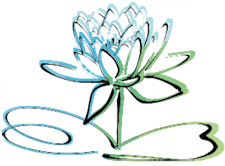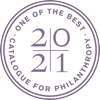At Smith Center for Healing and the Arts, we advocate for an integrative approach to cancer care that treats the whole person – mind, body, and spirit — by combining the best medical interventions with complementary and supportive therapies. We offer educational, therapeutic, supportive programs here at Smith Center that can help you be an active participant in your own healing.
(See our current program calendar)

In addition, the following resources may be useful to you as you chart your course and make decisions about your care and the way you want to live through your experience with cancer. There are hundreds of good resources available to help you, but cancer is overwhelming enough. We recommend you start by exploring one category at a time. You’ll see that small changes can change your experience and your wellbeing significantly.
Please note that the following links and resources are listed for your information and convenience only. We have attempted to include the highest quality information and tools available, but do not specifically endorse any organization or their approach. Please discuss all treatment decisions with your physician.
1. Getting Started & Setting a Course
As you prepare to begin treatment for cancer, it is important to take some time to set your intentions, define your priorities, and identify opportunities for healing and support.
2. Explore Stress Reduction Practices
Science tells us that psychological stress can affect the immune system, the body’s defense against infection and disease, including cancer. Reducing stress benefits us physically, mentally, and emotionally. The following resources may be useful in helping you practice relaxation and positive affirmation on your own.
- Shanti’s Guided Yoga MP3
- Shanti’s Progressive Relaxation (PDF)
- Health Journeys – Guided imagery recordings on cancer, chemotherapy, radiation, and general wellness.
More stress reduction resources
3. Nourish Yourself with Healthy Foods
Eating well is one of the most fundamental and accessible ways of promoting good health and living well through cancer treatment and beyond.
- Smith Center Cooking & Nutrition Classes with Chef Laura Pole and other great teachers
- AICR Nutrition Hotline – 800.843.8114
- Environmental Working Group – Publishes the “Dirty Dozen” list of top foods to buy organic each year.
Cookbooks & Cancer Diet Information
- A Taste of Smith Farm Center – Laura Pole (read it at our library!)
- Cancer Fighting Kitchen – Rebecca Katz w/ Mat Edelson
- Soul Savory Cookbook– Smith Center, Ed. Laura Pole (order from Smith Center)
- What to Eat If You Have Cancer: Healing Foods that Boost Your Immune System – Daniella Chace and Maureen Keane, MS
More nutrition & nourishment resources
4. Soak Up Wisdom, Find Inspiration
We recommend the following books and journals to help you gain perspective or dive deeper into various aspects of living with illness.
- Choices in Healing: Integrating the Best of Conventional and Complementary Approaches to Cancer, by Michael Lerner, PhD
- Healing Outside the Margins: The Survivors Guide to Integrative Cancer Care, by Carole O’Toole, with Carolyn B. Hendricks, MD
- Anticancer: A New Way of Life, by David Servan-Schreiber, MD, PhD
- Kitchen Table Wisdom: Stories that Heal, by Rachel Naomi Remen, MD
- The Definitive Guide to Cancer, Third Edition: An Integrative Approach to Prevention, Treatment, and Healing, (Alternative Medicine Guides) by Lise N. Alschuler, ND, and Karolyn A. Gazella
- Cancer as a Turning Point: A Handbook for People with Cancer, Their Families, and Health Professionals,by Lawrence LeShan, Ph.D
- Life Over Cancer, by Keith Block, MD
5. Prioritize Emotional Support
The mental and emotional stress of living with cancer and undergoing treatment can be a serious challenge for both patients and caregivers—sometimes leading to greater problems in the long term. In 2008, the National Institute of Health set a new standard of care that includes psychosocial support through all stages of treatment. Caring for yourself emotionally is one of the most important things you can do to support yourself during and after a cancer experience.
- Join a Support Group or Cancer Retreat here at Smith Center
- Find a counselor, social worker, or psychiatrist with expertise in cancer-related distress through the American Psychosocial Oncology Society (866.276.7443) or Psychology Today’s – Find a Therapist DC website
- Find a local support group
More on emotional support and local support groups
6. Consider Complementary and Supportive Therapies
Many people find improved wellbeing, stress reduction, and relief of symptoms and treatment side effects through complementary therapies such as acupuncture, naturopathy, yoga, and massage. You can learn more about Complementary Therapies at our Retreats and Navigating Cancer Programs or online at the National Center for Complementary and Alternative Medicine.
- Acupuncture – Acupuncture is often sought by those undergoing conventional cancer treatment to lessen side effects, including nausea and fatigue. It can be a useful adjunct to pain medication and some evidence points to increased immune function. Patients report improved sleep, digestion and appetite.
- Bodywork & Oncology Massage – There are many forms of bodywork, each with its own benefits. These include Alexander Technique, Craniosacral Therapy, massage, Polarity Therapy, Rolfing, and Shiatsu. Note: Concern has been expressed over the use of vigorous bodywork in the presence of metastatic disease. Please consult with your oncologist prior to starting any bodywork.
- Naturopathy – Naturopathy focuses considerable attention on nutrition to improve immune function and strengthen the body; can help reduce the side effects of treatment; relieves the burden of minor illnesses and can relieve depression and anxiety.
- Reiki & Energy Healing – Reiki is one form of energy healing, along with healing touch, therapeutic touch, Barbara Brennan Energy Healing and others. Anecdotal reports credit this modality with decreasing stress and anxiety, reducing fatigue, increasing stamina and deepening emotional and spiritual growth. It’s also reported to aid in the recovery of emotional and physical trauma and may minimize the side effects of conventional cancer treatments.
- Yoga, Meditation, QiGong & Tai Chi – In general, these practices can improve relaxation and reduce stress; ease anxiety and depression; support the immune system, decrease pain; improve alignment, circulation and flexibility; and lower heart and respiration rates.
More information about choosing complementary therapies
Need more? Browse our extended list of local & national resources
There are many great organizations here in Washington, DC and around the country that offer more information and support that can help you along your way. We’ve listed a few to get you started.
- American Institute for Cancer Research – Offers latest research in diet, nutrition, and lowering risk of cancer overall; also involved with advocacy and policy work.
- Commonweal – Smith Center’s sister organization in Bolinas, California and west coast model for our Weeklong Cancer Retreats; on-line text of Michael Lerner’s “Choices in Healing: Integrating the Best of Conventional and Complementary Approaches to Cancer”
- Livestrong – A national organization providing a variety of educational and support services remotely throughout the country. Particular focus on fertility and cancer education.
- National Center for Complementary and Alternative Medicine (NCCAM) – Using scientific research, advocates for complementary and alternative medicine and their roles in improving healthcare.
- National Cancer Institute, Office of Cancer Survivorship – Resource center aiming to enhance quality and length of survival, also conducts research regarding effects of cancer treatment.
- National Cancer Institute, Office of Complementary Medicine – Resource center aiming to enhance quality and length of survival, also conducts research regarding effects of cancer treatment.
- The Center for Mind-Body Medicine – Local educational organization that offers trainings and programs to healthcare professionals and patients in mind-body techniques for healing.

